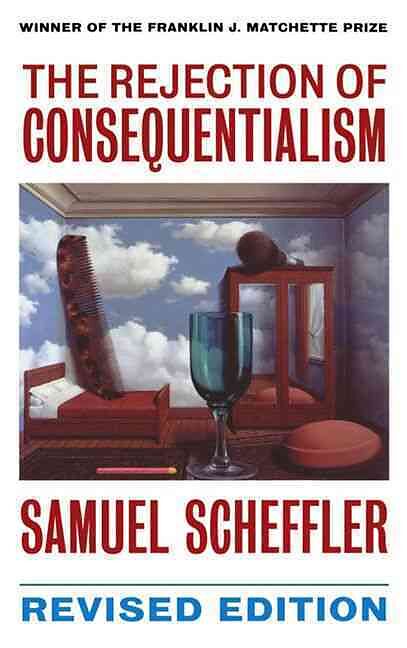The Rejection of Consequentialism
Einband:
Kartonierter Einband
EAN:
9780198235118
Untertitel:
A Philosophical Investigation of the Considerations Underlying Rival Moral Conceptions
Autor:
Samuel Scheffler
Herausgeber:
OUP Oxford
Auflage:
Revised
Anzahl Seiten:
208
Erscheinungsdatum:
11.08.1994
ISBN:
0198235119
Zusatztext `an essay in moral theory at the deepest level ... which should be taken seriously by all moral philosophers' Klappentext This is a new edition of Samuel Scheffler's widely acclaimed first book! which established him as one of today's leading moral philosophers. His reconsideration of the case against consequentialism has been highly influential! and he has now taken the opportunity to supplement the original work with three substantial subsequently published essays in which he responds to criticism of the book and further develops various of its themes and arguments. Zusammenfassung In contemporary philosophy, substantive moral theories are typically classified as either consequentialist or deontological. Standard consequentialist theories insist, roughly, that agents must always act so as to produce the best available outcomes overall. Standard deontological theories, by contrast, maintain that there are some circumstances where one is permitted but not required to produce the best overall results, and still other circumstances in which one is positively forbidden to do so.Classical utilitarianism is the most familiar consequentialist view, but it is widely regarded as an inadequate account of morality. Although Professor Scheffler agrees with this assessment, he also believes that consequentialism seems initially plausible, and that there is a persistent air of paradox surrounding typical deontological views. In this book, therefore, he undertakes to reconsider the rejection of consequentialism.He argues that it is possible to provide a rationale for the view that agents need not always produce the best possible overall outcomes, and this motivates one departure from consequentialism; but he shows that it is surprisingly difficult to provide a satisfactory rationale for the view that there are times when agents must not produce the best possible overall outcomes. He goes on to argue for a hitherto neglected type of moral conception, according to which agents are always permitted, but not always required, to produce the best outcomes....
Klappentext
This is a new edition of Samuel Scheffler's widely acclaimed first book, which established him as one of today's leading moral philosophers. His reconsideration of the case against consequentialism has been highly influential, and he has now taken the opportunity to supplement the original work with three substantial subsequently published essays in which he responds to criticism of the book and further develops various of its themes and arguments.
Zusammenfassung
In contemporary philosophy, substantive moral theories are typically classified as either consequentialist or deontological. Standard consequentialist theories insist, roughly, that agents must always act so as to produce the best available outcomes overall. Standard deontological theories, by contrast, maintain that there are some circumstances where one is permitted but not required to produce the best overall results, and still other circumstances in which one is positively forbidden to do so. Classical utilitarianism is the most familiar consequentialist view, but it is widely regarded as an inadequate account of morality. Although Professor Scheffler agrees with this assessment, he also believes that consequentialism seems initially plausible, and that there is a persistent air of paradox surrounding typical deontological views. In this book, therefore, he undertakes to reconsider the rejection of consequentialism. He argues that it is possible to provide a rationale for the view that agents need not always produce the best possible overall outcomes, and this motivates one departure from consequentialism; but he shows that it is surprisingly difficult to provide a satisfactory rationale for the view that there are times when agents must not produce the best possible overall outcomes. He goes on to argue for a hitherto neglected type of moral conception, according to which agents are always permitted, but not always required, to produce the best outcomes.

Leider konnten wir für diesen Artikel keine Preise ermitteln ...
billigbuch.ch sucht jetzt für Sie die besten Angebote ...
Die aktuellen Verkaufspreise von 6 Onlineshops werden in Realtime abgefragt.
Sie können das gewünschte Produkt anschliessend direkt beim Anbieter Ihrer Wahl bestellen.
Loading...
Die aktuellen Verkaufspreise von 6 Onlineshops werden in Realtime abgefragt.
Sie können das gewünschte Produkt anschliessend direkt beim Anbieter Ihrer Wahl bestellen.
| # | Onlineshop | Preis CHF | Versand CHF | Total CHF | ||
|---|---|---|---|---|---|---|
| 1 | Seller | 0.00 | 0.00 | 0.00 |
